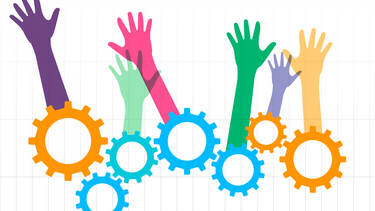Nonprofit
What Happens When Unions Bargain for Social Justice?
In a new study, Yale SOM’s James Baron and Daniel Julius examine the wave of unionization in museums, where workers often bring social-justice concerns to the bargaining table.

A Better Algorithm Can Bring Volunteers to More Organizations
Yale SOM’s Vahideh Manshadi and her collaborators found that an online platform was steering volunteers toward a small group of opportunities. By building equity into the algorithm, they were able to help more organizations find the volunteers they need.

Land Trusts’ New Tools for Fighting the Climate Crisis
Land trusts are bringing innovative new tools to tackle the myriad problems created by climate change.

Don’t Stop Investing in Philanthropic Goals
We asked Teresa Chahine, an expert in social entrepreneurship and public health, how philanthropies and donors can respond to the turmoil caused by COVID-19 while keeping their long-term goals in mind.

What Does an Economist Make of the Ice Bucket Challenge?
Somehow ice and cold water have become the social media phenomenon of the summer. Millions of people have shivered and screamed while dumping buckets of ice over their own heads, and a medical charity has tens of millions of dollars raised as a result. Yale Insights spoke with Yale economist Florian Ederer to try to make sense of all of this.

Donors Give More When They Have a Sense of Belonging
Recent research, drawing on behavioral economics, suggests that donors make larger contributions to a nonprofit organization when they have a sense of active involvement in the organization's mission. In an op-ed for the New York Times, Professor Robert Shiller suggests that changes to legal and institutional structures could be powerful new tools to increase engagement and giving.
Does New York City Need Lincoln Center?
Performing arts organizations are contending with aging audiences and shrinking budgets, and looking for new ways to reach audiences. Yale Insights spoke with Jed Bernstein ’79, formerly a theatrical producer, as he prepared to begin his new job as president of Lincoln Center, the country’s biggest stage for classical music, opera, and dance and a pillar of New York City’s economy.

Can Teaching Tea Workers In India To Read Have a Larger Impact?
Mercy Corps’ literacy program in Assam, India, works because it is local—designed and taught by staff with an understanding of the culture there. As a global organization, Mercy Corps needs to balance investment in a deep understanding of local issues with the imperative to make a difference in as many lives as possible.

Do international development organizations need to be in the innovation business?
Neal Keny-Guyer '82, CEO of Mercy Corps, talks about his organization's formula for innovation: local leadership, rigorous metrics, and a willingness to adapt and change in mid-project.

When is financial sustainability the wrong goal?
Should mission-driven nonprofits put money aside for a rainy day or spend what they have meeting the present needs of the people they serve?
How should we fund nonprofits?
The nonprofit sector is developing tools for financing and managing the organization that come largely from the for-profit world. Clara Miller, president and CEO of the Nonprofit Finance Fund discusses both the need for more financial savvy in the nonprofit realm as well as the pitfalls of an overly commercial mindset.